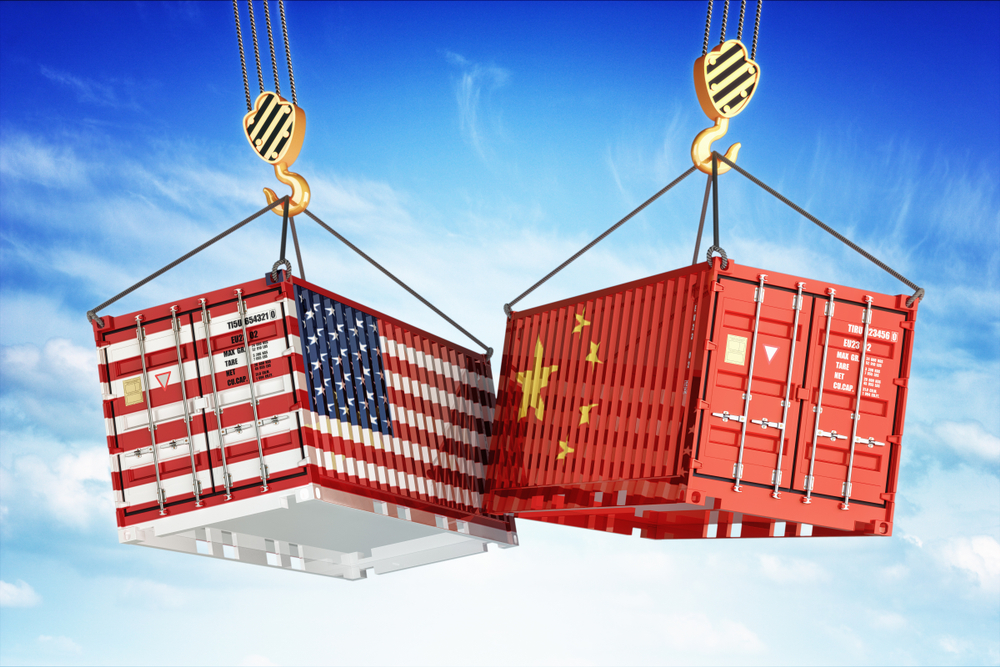U.S. Raising Tariffs for China-Made Electronics to 25%
On Sunday, U.S. President Donald Trump said on Twitter that he would raise tariffs on electronics imported from China to 25% from the current 10% that are set for imports worth $200 billion. He also said that he may add the new 25% tariff to another $325 billion worth of goods coming from China. The announcement comes days before the China delegation is supposed to arrive in the U.S. to discuss the trade relationship between the two countries.
"For 10 months, China has been paying Tariffs to the USA of 25% on 50 Billion Dollars of High Tech, and 10% on 200 Billion Dollars of other goods. These payments are partially responsible for our great economic results. The 10% will go up to 25% on Friday," he tweeted. "325 Billions Dollars of additional goods sent to us by China remain untaxed, but will be shortly, at a rate of 25%."
According to Reuters, China said today that it will still hold trade talks with the U.S. later this week.
The U.S. imports $540 billion worth of goods from China every year, so the addition of the new tariff on top of the existing tariff for $250 billion worth of goods will likely impact all goods coming from China, including computers, smartphones, clothing, footwear and more. Since the trade dispute started, electronics coming from China have had a 10% tariff imposed on them, which means that the new tariff on electronics will increase by two and a half times.
The U.S. has been imposed tariffs on China because President Trump believed that the country was using unfair trade practices that were hurting the U.S. economy. China has retaliated with its own set of tariffs against products imported from the U.S. When the two countries' trade teams met in November 2018 in Argentina, both agreed to a truce until an end to the trade war could be negotiated.
More Manufacturers Could Move Out Of China
One consequence of these tariffs is that more manufacturers, including suppliers of PC components, could increasingly move production out of China. China has previously been accused of stealing technology from U.S. companies or coercing them into giving it away as part of the mandatory “joint ventures” between foreign companies and local Chinese companies. However, as part of some recent trade discussions between U.S. and China, China promised not to coerce U.S. companies into giving away their technology anymore.
China and some of its companies have also been recently accused of espionage and trying to put backdoors into products sold in the U.S.
Get Tom's Hardware's best news and in-depth reviews, straight to your inbox.
A previous Bloomberg report said that Super Micro’s server motherboards were being sold with built-in backdoors; although, Super Micro has denied this. Still, according to a recent report, Super Micro is demanding its suppliers to make the server components it needs outside of China.
The new 2.5x increase in tariffs for Chinese-made products could convince even more electronic companies to take similar actions.
Lucian Armasu is a Contributing Writer for Tom's Hardware US. He covers software news and the issues surrounding privacy and security.
-
nicholas70 Glad someone finally decided to stand up to China to at least some extent. The truth is they have been shafting this country for years, and the rest of the west for that matter. Hell they even shafted Russia by ripping off some of their weapon designs and producing cheap domestic knockoffs. If it was up to me we would also stop allowing them to send their folks over here to get educated only to then turn around and go home and compete against us. Not to mention a number of Chinese students here have been known to be involved in the theft of trade secrets.Reply -
dnaeye23 This being Tom's Hardware, how soon do you think the 25% tariffs will affect consumer prices on parts? I want to build a computer soon but would rather not pay 25% more.Reply -
ss202sl Why would you pay 25% more? There's too many variables involved, but the prices won't go up 25%Reply -
jsmithepa So in order to gain access to the Chinese market, we are forced to give up our know-how, and hacking we seem to not take seriously. Now China produces EVERYTHING and we complaint. Short term benefit, long term damage.Reply
